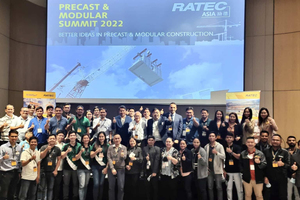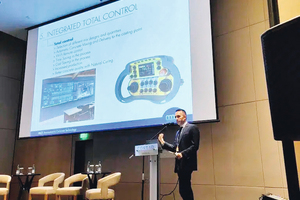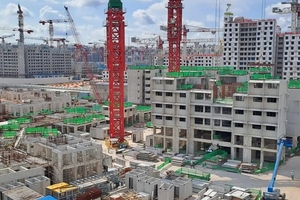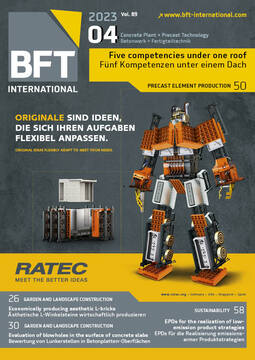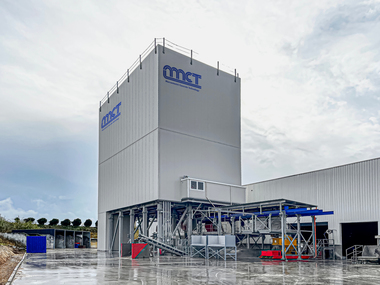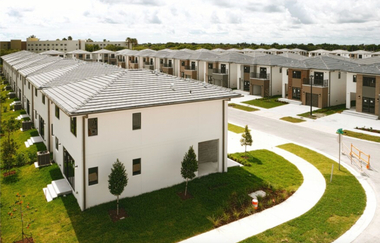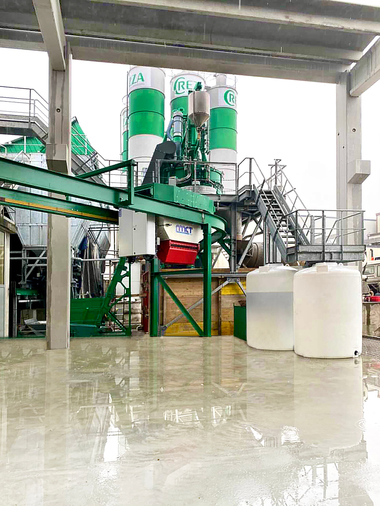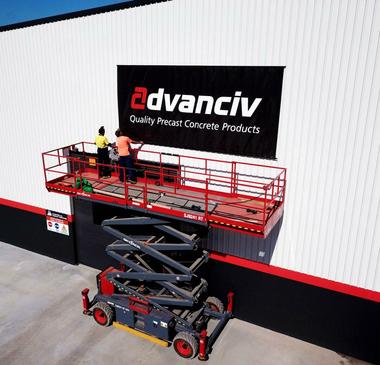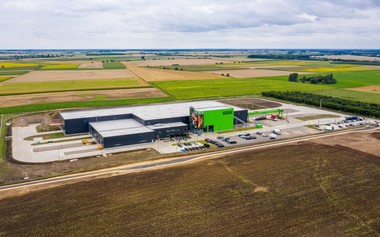Modular construction for the great transition
During the Precast & Modular Summit 2022 held in Manila, Philippines on October 3rd 2022, experts talk about benefits of a Modular Construction. VP Business Development of MCT Italy, Mr. Falchetti Gabriele, was present at the event.
Modular construction
When the pandemic hit, the world slowed down. Projects were paused. Workers stayed home. Manufacturing shut down. As restrictions loosened and construction ramped back up, demand increased, and prices inched upward. Two years later, prices have soared, the availability of skilled workers has plummeted, and essential building materials are gridlocked, sending shockwaves through the supply chain.
The simplest of projects is suddenly complicated by a punch list of challenges that need fixing: high prices getting higher, shortages leading to longer lead times, compounded by shorter schedules—all causing costly change orders and budget overruns. The Great Disruption is an even greater paradox: as unprecedented stimulus funding puts money in most of the countries, unprecedented upheaval in the global supply chain makes it hard to get funded projects off the ground.
None is immune. Projects simply can’t be brought in on budgets that were reasonable a year – or even six months – ago. Round after round of cost-cutting and downscaling plans as well as expectations isn’t the answer.
Buildings can only be downsized so much. Lower quality materials cost more in the long run. Cutting features and amenities reduce functionality. Instead of putting plans on hold, many developers worldwide are opting to move forward in a new direction: modular construction.
Rethinking building design, following aesthetic
Most of premier architectural firms are not only recommending modular designs to their most uncompromising clients; they’re using modular to create next-level buildings that elevate the design aesthetic.
Instead of rethinking costs, the Architects decided to rethink the design. It was clear that modular was the optimum way to deliver the large-scale project on budget, in a way that met everybody’s expectations.
The great disruption is becoming the great transition
While much of the migration to modular is driven by cost and speed, the final decision is increasingly based on a modular design that is structurally, technologically and aesthetically indistinguishable from a conventional building.
Nowadays it’s amazing how far the customization of modular buildings has come and between modular and site-built building most visitors would not know the difference. The buildings can exceed every expectation, delivering exact vision on an accelerated schedule.
Modular buildings are making construction cheaper, faster, and sustainable
Modular construction is a process where large, pre-engineered units are built off-site and are then assembled on-site. These factory-produced modules are built using the same design and materials and follow the same codes and standards as a traditional building would but can be put together in half the time. There are many benefits offered by modular construction, which range from:
savings in spend, time, and energy expenditure;
greater quality of the final product, as the modules are constructed under controlled conditions;
ensuring a lower likelihood of unforeseen errors and mishaps.
How modular construction benefits builders
1) The primary advantage of modular construction in a new design is the shortened construction schedule since the construction of the structure is done at the same time as site work, it allows the project to be completed between 30% to 50% quicker than traditional construction.
2) Construction delays due to undesirable weather and other external factors are essentially eliminated as the modules are built in a factory environment and can be assembled when conditions are favourable for on-site work, all of which assist in amplifying the efficiency of time and resources used.
3) It also benefits customers by being more cost-effective than traditional construction. Modules constructed in a factory generate less waste, eliminated material such as wood cut-offs can be used for other buildings, and surplus elements such as wires can potentially be recycled.
4) Modular construction demands fewer resources, enabling greater savings that can then be passed on to the buyer.
5) Finally, constructing modules in a controlled indoor environment lowers the risk of accidents.

